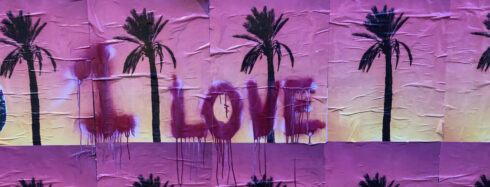June 1-2, 2023 – As part of the conference Affective Anthropocene: Contextualising Feelings and Environments under Climate Change I present a paper titled “Queering Our Way Out of the Anthropocene – On the work of Zheng Bo.”
Abstract:
Debates over climate change are, as this workshop’s outline describes, haunted by a binary thinking that often juxtaposes an utopian perspective with an apocalyptic one. The debate is equally haunted by a hard science discourse, saturated with numbers, facts, statistics. If we manage to reduce our CO2 level by x%, and limit the rising temperature by y%, then our future may be secured. Such approaches not only smack of a strong belief in science and related technological fixes; they also remain profoundly anthropocentric, in which once again human beings – be it farmers, scientists, citizens, politicians, etcetera – are called upon to save the planet. The voices within this debate are furthermore predominantly Euro- and Anglo-centric, repeating deeply ingrained colonial patterns of the unequal distribution of knowledge production.
The work of Hong Kong-based artist and scholar Zheng Bo circumvents any utopian or dystopian narrative, as it steers away from a scientific discourse. Instead, it queers nature, and it, how to say, ‘natures’ queer cultures. In their ongoing work Pteridophilia, that started in 2016, Zheng Bo is, in their words, “[c]onnecting queer plants and queer people, [it] explores the eco-queer potential.” We see six young men – half of them BDSM practitioners in their daily lives – entering a forest and engaging in sexual movements with ferns. In the words of the artist: “They establish emotional and physical relationships with the plants, relying on their bodies rather than words.” Ferns and human beings become entangled in a bodily, affective, sexual assemblage, sperms are related to spores, tongues to pistils. In my paper I want to explore how this queer imagination of living with and among nature offers a way out of current dominant binary and scientific eco-critical modes of thinking.
See also: zhengbo.org
